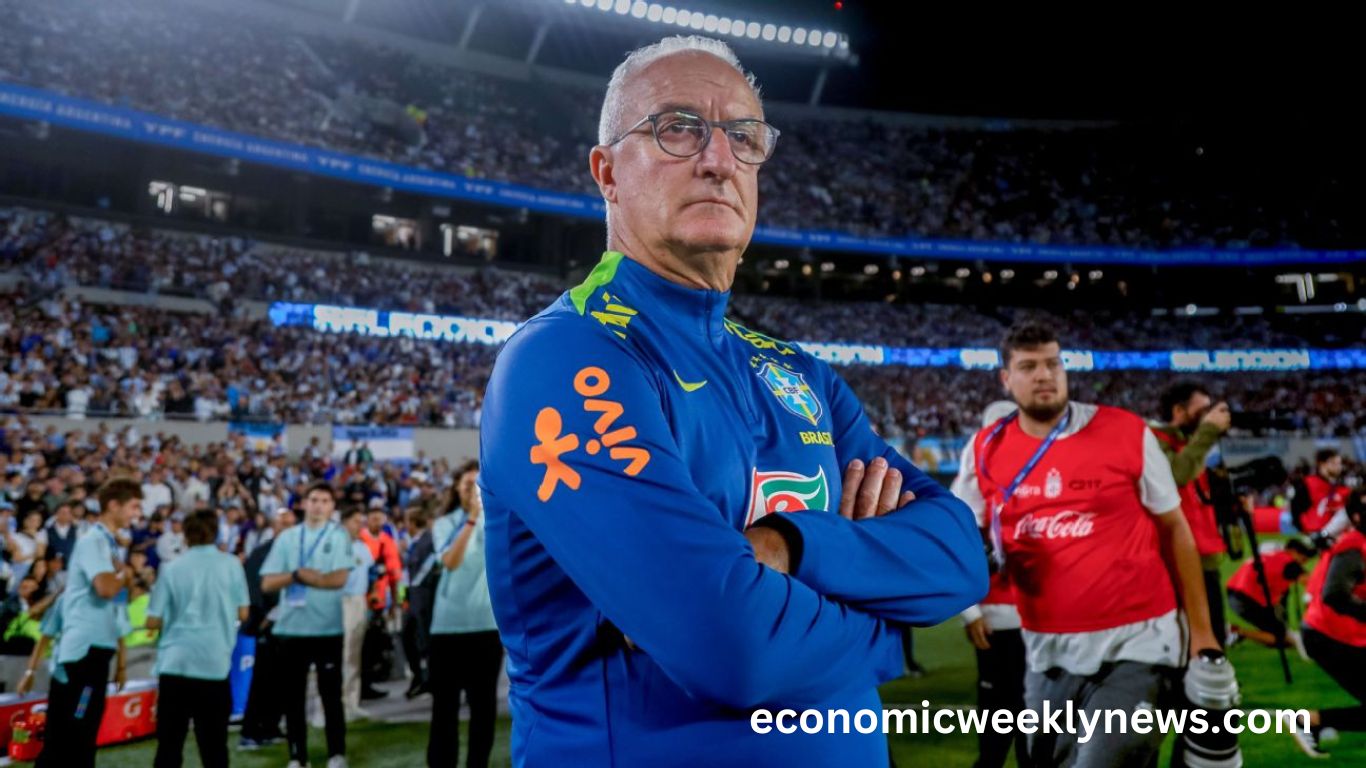The Brazilian Football Confederation (CBF) has officially parted ways with head coach Dorival Júnior following Brazil’s loss to Argentina in a recent high-stakes match. The decision comes as a significant shake-up in the national team’s leadership, signaling a move toward a new direction ahead of crucial international tournaments.
Mounting Pressure on Dorival
Dorival Júnior took over the managerial role with high expectations, aiming to revitalize the squad and restore Brazil’s dominance in world football. However, his tenure has been marked by inconsistent performances, raising doubts among fans and officials alike. The recent loss to Argentina, Brazil’s long-standing football rival, was viewed as the tipping point. The defeat not only dented Brazil’s morale but also cast serious concerns over the team’s tactical preparedness and overall direction.
A Disappointing Run in Competitive Fixtures
Under Dorival’s leadership, Brazil struggled to maintain consistent form in competitive fixtures. The team faced unexpected challenges in both World Cup qualifiers and friendly matches. Despite moments of promise, such as impressive wins against lower-ranked teams, the lack of cohesion against top-tier opponents became evident. The loss to Argentina, coupled with previous underwhelming results, solidified the perception that the national team required a fresh strategic approach.
Tactical Issues and Criticism
One of the major criticisms aimed at Dorival was his tactical decisions. While Brazil boasts some of the most talented players globally, the team often appeared disjointed on the field. Analysts pointed out questionable squad selections, lack of fluidity in attack, and defensive vulnerabilities that were exploited by stronger opponents. Fans expressed frustration over the perceived lack of progress, particularly in key matchups where Brazil failed to impose their traditional attacking style.
The Argentina Match as the Final Straw
Brazil’s encounter with Argentina was more than just a regular match. It carried historical significance, intensified by the rivalry between the two footballing giants. Argentina, the reigning world champions, displayed superior organization and discipline, exposing Brazil’s weaknesses. The defeat, coupled with a lackluster performance, intensified scrutiny of Dorival’s tactics and overall leadership. The CBF wasted no time in making a decisive move, opting to dismiss Dorival shortly after the match.
The Reaction from Fans and Experts
Football pundits and fans reacted strongly to the news of Dorival’s dismissal. Some supported the decision, arguing that Brazil needed a new vision to reclaim its place among the world’s best teams. Others questioned whether the coach was solely to blame, pointing to deeper issues within the team, including squad management and administrative decisions.
Possible Replacements
With Dorival’s departure, speculation has already begun regarding potential replacements. The CBF is reportedly considering several high-profile candidates, including both domestic and international options. Names such as Tite, who previously led Brazil, and European-based coaches with successful club careers have emerged as potential candidates. The choice of the next manager will be crucial in determining Brazil’s path forward.
The Road Ahead for Brazil
The Brazilian national team faces a crucial period of transition. Upcoming tournaments and World Cup qualifiers will test the resilience of the squad under new leadership. The CBF’s decision will play a defining role in shaping Brazil’s future on the international stage. Fans hope that a new managerial approach will bring renewed energy and success to the team, restoring its reputation as a dominant force in global football.
A Turning Point for Brazilian Football
Dorival’s dismissal underscores the high expectations surrounding the national team. Brazil’s footballing culture demands excellence, and any sign of stagnation is met with swift action. The upcoming appointment of a new head coach will not only define the tactical direction of the team but also reflect the federation’s long-term vision for sustained success.
Frequently Asked Questions
Why was Dorival Júnior fired?
Dorival Júnior was dismissed due to Brazil’s inconsistent performances and the recent loss to Argentina, which highlighted tactical and structural weaknesses in the team.
Who will replace Dorival as Brazil’s head coach?
The CBF is considering several candidates, including former Brazil coach Tite and European-based managers with successful club experience.
How did Brazil perform under Dorival?
Brazil had a mixed record under Dorival, with some strong performances against weaker teams but struggles against top-tier opponents.
Was the loss to Argentina the only reason for his dismissal?
While the loss to Argentina was a significant factor, the decision was also influenced by Brazil’s overall inconsistent form and lack of progress.
How have fans reacted to Dorival’s firing?
Reactions have been mixed. Some fans support the decision, while others believe deeper issues within the team’s management need to be addressed.
What are Brazil’s upcoming matches?
Brazil will face key World Cup qualifiers and international friendlies as they look to rebuild under new leadership.
What tactical issues did Dorival face?
Critics pointed to disjointed squad selections, lack of attacking fluidity, and defensive vulnerabilities that were exploited by stronger teams.
How will this affect Brazil’s chances in future tournaments?
The new managerial appointment will be crucial in determining Brazil’s performance in upcoming international tournaments and the World Cup.
Conclusion
Brazil’s decision to fire Dorival Júnior reflects the high expectations placed on the national team. The defeat to Argentina was a wake-up call, emphasizing the need for tactical improvements and better squad management. As Brazil looks for a new leader, the upcoming appointment will shape the team’s future, impacting both short-term results and long-term aspirations. Fans remain hopeful that the next coach will restore Brazil’s dominance on the global stage.

